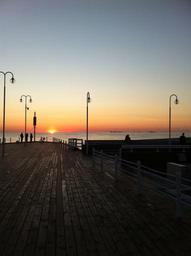Introduction
In an era where visual content is consumed more rapidly than ever, self-portrait photography has emerged as a profound medium for emotional expression. Artists and photographers alike have discovered that capturing one's essence through the lens can reveal layers of identity, vulnerability, and introspection. This exploration not only enhances our understanding of self-expression in art but also allows us to engage with the aesthetic qualities inherent in visual storytelling.
Self-portrait photography goes beyond mere representation; it invites an intimate dialogue between the artist and their audience. In this article, we'll delve into various dimensions of self-portrait photography, including its origins, techniques, styles, and emotional depth. We'll uncover how this genre intertwines with contemporary aesthetics while providing practical insights into creating impactful self-portraits that resonate on emotional levels.
Understanding Self-Portrait Photography
What is Self-Portrait Photography?
Self-portrait photography involves creating images that depict oneself. Unlike traditional portraits taken by another person, this practice allows individuals to explore their identities and emotions through their artistic lens.
The Historical Context of Self-Portraiture
Historically, self-portraiture has roots in painting and drawing, dating back to the Renaissance period. Artists like Rembrandt and Van Gogh used this practice not just to showcase their skills but also to explore their inner worlds.
The Evolution of Self-Portrait Photography
With the advent of photography in the 19th century, artists began to experiment with capturing themselves through the camera's eye. The development of affordable cameras democratized this art form, allowing anyone to create self-portraits.
The Emotional Depth of Self-Portraits
Capturing Emotions Through Visual Art
Self-portraits serve as a canvas for emotions—joy, sadness, anger—each click encapsulates a moment in time filled with personal significance.
Introspection and Vulnerability in Art
Creating self-portraits often requires deep introspection. Artists confront their vulnerabilities head-on, leading to powerful imagery that resonates deeply with viewers.
Identity Exploration Through Portrait Styles
Self-portrait photography offers a unique avenue for exploring identity. From faceless portraits http://eurekachronicles734.lucialpiazzale.com/designing-spaces-with-nature-inspired-photography-collections to abstract representations, artists can express multifaceted aspects of themselves.
Technical Aspects of Self-Portrait Photography
Photography Techniques for Stunning Self-Portraits
Lighting Choices: Natural light can evoke warmth or melancholy depending on the time of day. Composition: The rule of thirds can guide framing decisions. Camera Settings: Understanding aperture and shutter speed plays a crucial role in achieving desired effects.Aesthetic Photography Techniques Simplified
Utilizing techniques like selective focus or depth-of-field manipulation can enhance aesthetic qualities within self-portraits.
Artistic Choices That Shape Emotional Narratives
Color Palette Selection in Self-Portraiture
Colors carry emotional weight. Warm hues may elicit feelings of happiness or comfort, while cooler tones might convey sadness or solitude.
Integrating Interior Design Elements into Photography
Set design plays an essential role; incorporating elements from home decor can add layers to your narrative while enhancing overall aesthetics.
Exploring Different Portrait Styles
Faceless Portraits: A Study in Anonymity
Faceless portraits remove identity markers to emphasize emotion rather than appearance. This style invites viewers to project their interpretations onto the image.
Abstract Portraits: Breaking Conventional Boundaries
Abstract portraits challenge traditional norms by deconstructing forms and colors—this technique often leads viewers toward deeper emotional connections.
Practical Techniques for Creating Impactful Self-Portraits
Linocut Printing Techniques for Unique Textures
Linocut printing adds tactile quality to photographic art—this technique enables artists to merge traditional printmaking with contemporary photography seamlessly.

Woodblock Printing Techniques as Artistic Expression
Similar to linocuts but utilizing wooden blocks instead, this method lends a rustic feel that can evoke nostalgia within modern artworks.
Aesthetic Trends Shaping Modern Self-Portraiture
Exploring Colorful Portraits in Contemporary Art
Vibrant colors dominate today’s aesthetic trends; they elevate visual impact while showcasing exuberance inherent in self-expression through art photography.
Embracing Minimalist Decor in Artistic Displays
Minimalism emphasizes simplicity—artistic choices focused on fewer elements can create striking visuals laden with meaning rather than chaos.
Creating Personal Connections Through Visual Storytelling
Thought-Provoking Imagery: Evoking Emotion Through Art
Art has the power to provoke thought—self-portraits that challenge societal norms or personal beliefs often resonate profoundly with viewers seeking connection or understanding.
Example:
Consider a self-portrait showcasing dark shadows against bright backgrounds; it could symbolize internal conflict—a juxtaposition many find relatable yet complex.
Decorating Spaces with Personal Artistry
Wall Art Photography as Home Decor Statement Pieces
Integrating personal photographs into home interiors transforms spaces into reflections of individual personality—creating environments conducive to inspiration and introspection alike.
Gallery Wall Inspiration: Curating Your Own Story
Curating a gallery wall featuring an eclectic mix of self-portraits alongside other artworks creates dynamic visual experiences within everyday spaces while enhancing home aesthetics significantly!
Tips for Gallery Wall Creation:
Mix sizes and frames for interesting compositions. Pair photographs with decorative art prints that complement color palettes. Arrange pieces thoughtfully—balancing negative space fosters harmony!FAQs
1. What is the purpose of self-portrait photography?
Self-portrait photography serves multiple purposes including artistic expression, identity exploration, emotional reflection, and communication through visual storytelling.
2. How do I start creating my own self-portraits?
Begin by experimenting with different lighting conditions and settings; consider your message before selecting props or backgrounds that represent you authentically!
3. What equipment do I need for effective portrait photography?
A basic setup includes a camera (DSLR or mirrorless preferred), tripod (for stability), external lighting sources (if shooting indoors), plus editing software post-shoot!


4. Can I use my smartphone for creating compelling self-portraits?
Absolutely! Many smartphones come equipped with high-quality cameras capable of capturing stunning images—just ensure good lighting conditions are available during shoots!
5. What styles exist within self-portrait photography?
Styles vary widely—from traditional posed shots emphasizing facial expressions—to abstract depictions focusing on shapes/colors rather than identifiable features!
6. How does interior design influence my photographic work?
Incorporating elements from home decor helps establish mood/tone within your compositions; thoughtful selection reflects personal style while enhancing overall aesthetics!
Conclusion
In conclusion, “Exploring the Emotional Depth of Self-Portrait Photography” reveals how deeply intertwined artistic expression is with our identities and emotions. By delving into various techniques, styles, and aesthetic qualities available today—we not only empower ourselves creatively but also foster connections through shared experiences captured visually across time! Whether you're an aspiring artist seeking new avenues for creativity or simply someone curious about this expressive medium—the journey into self-discovery via portraiture promises endless possibilities waiting just behind each click!